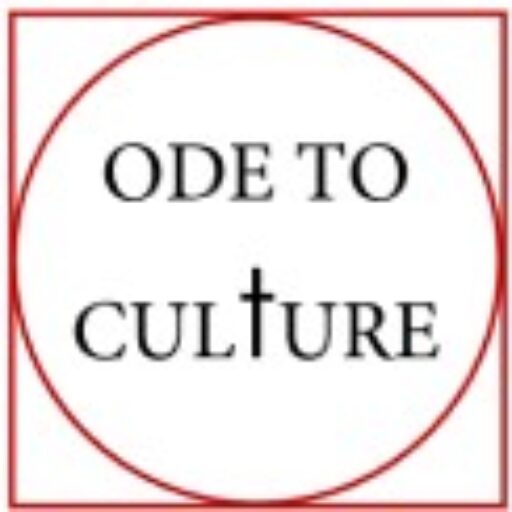February 1, 2025
The Prompt:
Any organization between people has a culture. It can manifest in the camaraderie, procedures, training, leadership, or goals of the team. We are likely in the middle of a huge culture-shock. Or we aren’t. Either way, we have a great opportunity to witness an organized attempt at reform in our federal government. Let this prompt inspire you to take stock of these interesting times.
The recent moves by the Trump administration to “drain the swamp” raise several questions about government and culture. I hope this discussion will lead us to better understand the workings of government at the local, state, and federal levels as well as how culture is affected by these institutions. For the purposes of this discussion, consider the following questions:
- What does efficiency mean in governance?
- How can a weakened workforce be considered efficient?
- If “Red-Tape” is a function of a litigious society, how can the proposed reforms jeopardize any functions of government?
- What good could come from DOGE?
- What harms may come from dismantling the administrative state?
- How else can a citizenry keep its government accountable?
- Are we actually in support of democracy?
Context:
**Disclaimers**
- I work closely with the federal government. I have personally witnessed gross inefficiencies as well as overwhelming burdens on certain parties within the federal government. I have been persuaded toward “draining the swamp” long before Vivek Ramaswamy and Elon Musk proposed plans for such a task.
- I am really reaching (intellectually) to articulate this topic. Please advise where I have erred.
One of the key points of this project continues to question the purpose of culture. The answer, in short, is that there are forms of knowledge and skill that are only attainable by submitting to the wisdom of elders; they are not learned, they are lived. The point of culture is not to maintain the status quo of previous generations, but the necessary acceptance of seeing the world through the lives of previous generations. I suspect the most apt proof of this idea is found in the sixth commandment.
Honor your father and your mother, that your days may be long in the land that the LORD your God is giving you.
Exodus 20:12
Our government is not sustainable. Much of its legacy programs precede our birth and especially our adult lives, but we will soon have to pay the price of its decades of indulgence. I say all of this with the same ignorance that the Trump administration has in creating the Department Of Government Efficiency (DOGE) through executive order. Because our system was built (by our consent) with checks and balances, hidden agendas, and strategic compartmentalization, the task of judging “inefficiencies” is daunting. There are about three-million federal employees, not to include [many more] private contractors that do most of the work credited to our government. The plan, as written in the executive order states:
(c) DOGE Teams. In consultation with USDS, each Agency Head shall establish within their respective Agencies a DOGE Team of at least four employees, which may include Special Government Employees, hired or assigned within thirty days of the date of this Order. Agency Heads shall select the DOGE Team members in consultation with the USDS Administrator. Each DOGE Team will typically include one DOGE Team Lead, one engineer, one human resources specialist, and one attorney. Agency Heads shall ensure that DOGE Team Leads coordinate their work with USDS and advise their respective Agency Heads on implementing the President ‘s DOGE Agenda.
The effort is intended to take 18 months just to identify where efficiencies may be gained. The conceptual framework of the DOGE plan came from two entrepreneurs with differing views of how the reforms should be executed.
The first, represented by Ramaswamy, is to strip down the administrative state that governs through rules and regulations. This effort would be to enforce recent supreme court rulings (West Virginia v. EPA)(Loper Bright Enterprises v. Raimondo, Secretary of Commerce) that ideally places the legislative powers of the federal government into the hands of the elected legislature rather than executive agencies. This would mean carving out the executive agencies devoted to developing rules and regulations.
The second side of the DOGE plan, represented by Musk, is an attempt to streamline the actual work conducted by the government through upgrades in technology, audits on spending and asset management, or reduction of force. This approach attempts to garner the entrepreneurial spirit of innovation and production within the existing structures of governance.
There are at least three categories of challenges to this effort.
- Department – By exercising this executive action, the team is opened up to the organizational challenges of appointing the right people to the right task. Our institutions are nothing, if not, compartmentalized. Every person in every department in every agency has an opinion about what their team’s mission is and how it should be accomplished. DOGE is supposed to conclude in eighteen months, and there is a good chance that the system will drag its feet to prevent any substantive accountability.
- Government – The federal institutions have powers and discretion that are not accessible to outsiders. “Need-To-Know” is a tool used to place ultimate discretion on each person within a team (inside or outside federal employment). There is extreme prejudice against “information spills” that may compromise the mission. The DOGE efforts might work for unclassified operations, but at any level of government with higher security classification, I expect the project will be thwarted. Or, if during the investigations, documents are mishandled, according to security protocols that every person in the federal government is trained on, the DOGE teams may be criminally charged with threats to national security.
- Efficiency – “Efficiency” is never defined (a weakness of modernism that persists today), thus each agency will choose the efficiencies they would like to exploit. This likely will not reduce the workforce (as the administration hopes) but will introduce an even larger task of reorienting the priorities of the government. [To any political philosophers still reading, yes, back to John Locke and the eternal debate about limits to power.] This is where Ramaswamy’s constitutional approach to the role of the executive cabinets has more promise in lasting reforms.
There are too many unresolved philosophical questions remaining from the industrial revolution and cold-war to come to peace with limiting government. In one week, we’ve seen the launch of the “Department Of Government Efficiency” and a new promise to double our electricity production to support the cutting-edge research on Artificial Intelligence. By this reasoning, in limiting waste in the government, we’ll make room for exorbitant wastes of natural resources. It is hubris that gives us faith that future innovators will come up with solutions to our problems. Wendell Berry continues to decry this perverted sense of progressivism.
One of the favorite words of the industrial economy is “control”: We want to “keep things under control”; we wish (or so we say) to “control” inflation and erosion; we have a discipline known as “crowd control”; we believe in “controlled growth” and “controlled development,” in “traffic control” and “self-control.” But, because we are always setting out to control something that we refuse to limit, we have made control a permanent and helpless enterprise. If we will not limit causes, there can be no controlling of effects. What is to be the fate of self-control in an economy that encourages and rewards unlimited selfishness?
Wendell Berry from Two Economies
As I mature, the world appears more wonderfully complex. This leaves me only to trust our culture and institutions wherever they are not observably nefarious. If this were a source of meaning, it wouldn’t last. Thankfully, we have a more secure hope, which prompts me to live out the simplicity of another insight from Wendell Berry.
So, we must love where we cannot trust,
trust where we cannot know,
and must await the wayward coming grace that joins living and dead;
taking us where we would not go–
into the boundless dark.
When what was made has been unmade,
the maker comes to his work.
Wendell Berry from A Gracious Sabbath Stood Here
Notes:
Executive Order for Department of Government Efficiency
Op-Ed to describe the intent behind DOGE
Conversation with Vivek Ramaswamy on the Visions for DOGE (please mind the flagrancy)
Manners of sabotage were declassified in the following OSS field manual.

